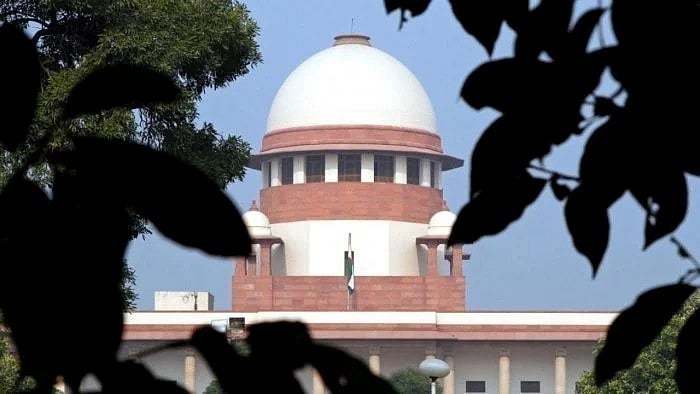
The Supreme Court of India.
Credit: PTI File Photo
New Delhi: The Supreme Court on Thursday transferred from high courts to itself, four PILs seeking a ban on opinion trading platforms for allegedly promoting illegal betting and gambling activities.
A bench comprising Justices J B Pardiwala and R Mahadevan passed the order in a transfer petition of Probo Media Technologies Pvt Ltd, a firm which operates one such opinion trading platform.
The bench, in its order, noted the factual position with regard to petitions pending in different high courts.
Senior advocate Abhishek M Singhvi, appearing for the petitioner, said there were two petitions in the nature of PIL pending before the Bombay High Court.
He said the third PIL is pending before the Gujarat High Court and the fourth before the Chhattisgarh High Court.
Singhvi said the PILs from other high courts could be transferred to the Bombay High Court.
Rejecting the submission, the bench said, “All these four PILs should be heard by this court...we direct the High Court of Bombay, High Court of Gujarat, and High Court of Chhattisgarh to transfer all the writ petitions with the entire record to this court at the earliest. Once these four PILs are transferred to this court, the Registry shall notify before this court as directed by the Chief Justice of India." Senior advocate Gaurav Aggarwal was representing social activist Sumit Kapurbhai Prajapati, the original petitioner in one of the PILs.
Aggarwal said the issues raised in the petitions were not identical, particularly the one in Chhattisgarh, which questions the legislative framework around gambling.
He said the mere presence of a common petitioner should not be grounds to consolidate all cases.
The top court on May 22 issued notice on the transfer petition of the firm.
“As we have issued notice and would like to hear the original petitioners...the PILs pending in the Gujarat High Court and the High Court of Chhattisgarh, respectively, for the time being may not be heard,” the bench then said.
Opinion trading platforms akin to online marketplaces enable users to trade predictions about real-world events.
Participants place bets on whether specific outcomes will occur, typically presented as "yes" or "no" questions.
By staking money on their chosen prediction, users stand to earn a payout if their forecast proves accurate otherwise forfeit their wager.